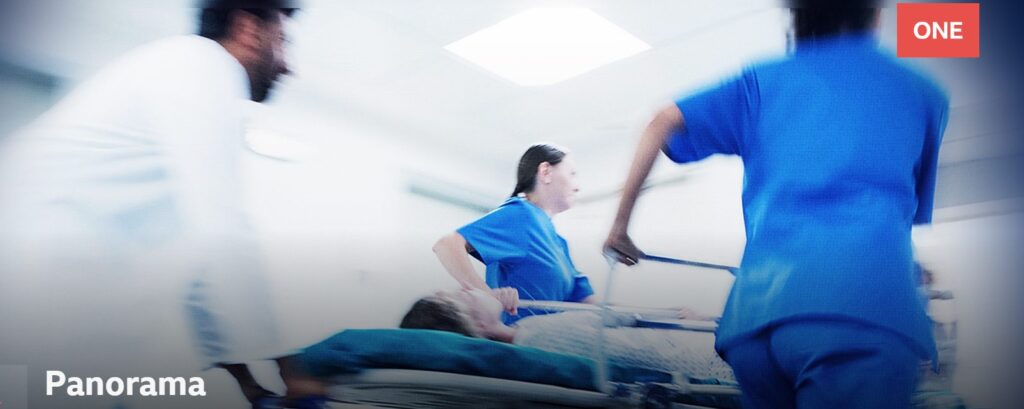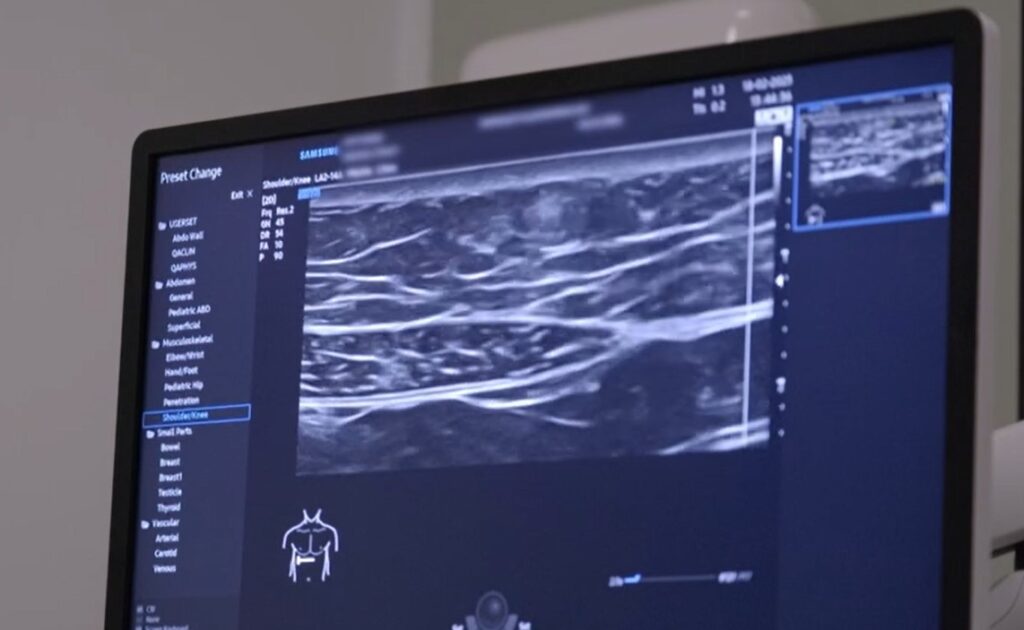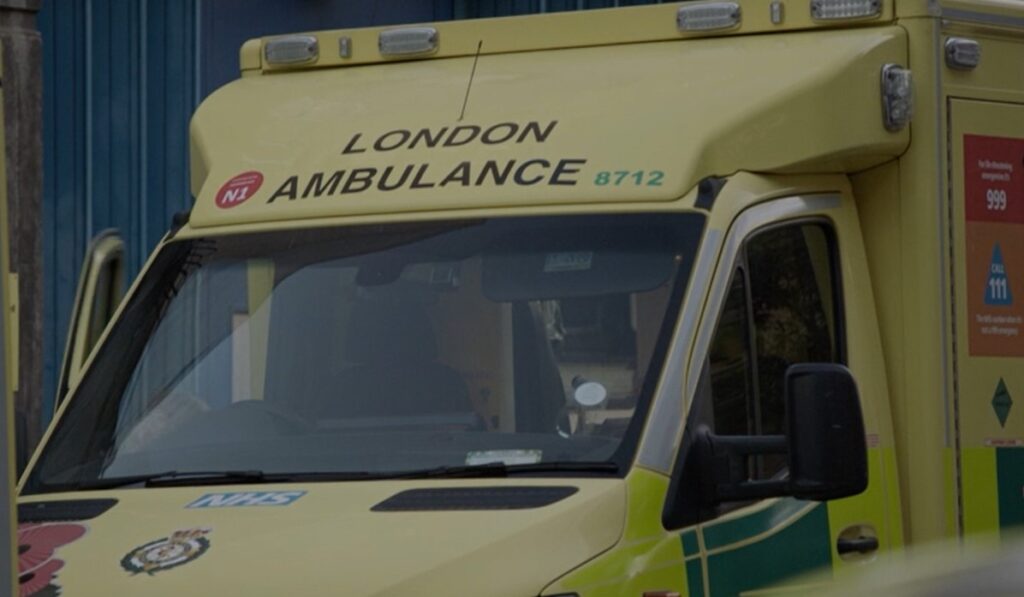 TV review: Panorma on ‘fixing the NHS’
TV review: Panorma on ‘fixing the NHS’By an NHS shop steward
Labour have chosen to make ‘fixing’ the NHS one of their main planks for the forthcoming local elections, with a recent party-political broadcast devoted exclusively to the topic. And in the Runcorn by-election, the Party has chosen to go big on this issue – along with the notorious “close the asylum hotel” leaflet, that is.
This Panorama programme offered a great condensed look in 30 minutes at the current state of the NHS, what can be done and is being done, and whether Wes Streeting’s remedies can work.
They began well by straying outside London to Barnsley, to see a new community diagnostic hub, where state-of-the-art scanners and X-ray facilities offer speedier diagnosis of all sorts of conditions. Skin cancers can be followed up more quickly at a clean, modern facility in the town centre. The manager gave figures that showed that attendance for breast cancer screening and diagnosis had improved from 43% to 80%.
But the other side of the coin was a local hospital, where we saw all the sadly usual features of the austerity NHS, with ambulance queues, corridor treatment and 50-hour waits at A&E. The King’s Fund expert noted that the NHS is under its greatest pressure ever and that these extreme waits cost lives, and also, that the situation is not going to get any easier with our ageing population.
‘Fixing the NHS’ was a key promise from Keir Starmer in the election, and it was one of his five ‘missions’. Panorama also showed Wes Streeting on a conference podium, overflowing with synthetic passion as he shouted that “We will give Britain its NHS back!”
Streeting dissolves into blather
But when interviewed by Panorama, Streeting dissolved into blather. Apparently, he is going to deliver “Faster access to care in the right place at the right time”. Who could disagree? His solution was not more funding, but big re-organisation. “I fear for the future of the NHS if we do not grasp the need for reform right now”, making the future of the NHS dependent on re-organisation.
The abolition of NHS England was claimed to be a means to free up money to redirect to ‘the frontline’, and so help reduce A&E waits. But when asked about the disruption that will accompany any reorganisation, he came up with that old managerial excuse, “We cannot stick with the status quo”.
It is really a counsel of despair – that what we have is so bad that anything is better. But in my experience, “No change is not an option” is always used as an excuse for doing whatever it is the management really want to do.
Labour’s programme for the NHS is structured around three ideas – to move care and diagnosis from hospitals out into the community, to make better use of technology and AI, and to move from treatment to prevention.
On prevention, Panorama showed some really innovative work that the Steel City Practice in Sheffield had done to look through their patient roll to find those most at risk of ill health. The results were impressive, with reduced heart attacks, strokes and diabetes – the big killers in the modern NHS. And all quite preventable.
GPs seeing a million more patients a year
But they had only done it by switching their own resources from seeing patients to analysing 10,000 records, and that had led to longer waits to see the GP. Also, this work had been done in 2019, before Covid, and the doctor said that now he would not have the headroom to make that switch.

GPs are now seeing a million more patients a year than pre-Covid, when there are fewer GPs, and more patients, and an ageing population. The government have pledged a thousand more GPs by April and £900mn for general practice across the country. But no-one can see how that would work, as it takes six years to train a GP and so many are retiring.
That is probably £900mn more than the Tories would have allocated, but is it enough? There were 6,277 general practices in England in 2024 (the lowest number ever), and so £900mn translates to £143,000 for each. If each one takes on just one more GP, with salary, NI and pension costs, that is the £900mn gone.
On technology and AI, the programme makers visited a clinic using AI to review heart scans in 3-D and real time. The scans had previously been checked individually by a consultant, but now were being checked in around one tenth of the time by AI, with only the final judgement being made by the consultants.
The lead consultant was very enthusiastic about the impact of AI on his clinic, as they could now “scan more patients and report more results”. But therein lies the problem – AI will increase productivity so more people can be seen, and more ill health prevented and treated, but it will not show up as a budget saving in Rachel Reeves’ spreadsheets.
Again, the programme showed the other side of the coin – clinics working on paper records and pagers (even fax machines are still in use in some places), and ancient computers. It would take an estimated £2bn to bring the NHS up to the computing standards of the banks and retail giants.
Health hub in Barnsley shopping centre
On care and diagnosis in the community, Panorama went to look at a new health hub in the Barnsley shopping centre, funded by the council, the Regional Mayor and the government. The services are much easier to access than an out-of-town hospital with an overloaded car park, and the council estimate that the patients and visitors will spend £17mn a year in the town centre.
This points to an oft-forgotten fact that in post-industrial towns, the biggest employer is usually the NHS, and in some places, there is more economic activity in the hospital shops, hair salons, cafes and pharmacies than in the town itself. But building these new health hubs costs money, and you must run the hospital services at the same time, incurring the costs of ‘double running’ for at least a few years. Money again, likely to be in short supply under Rachel Reeves’ iron-clad fiscal rules.
And there is plenty of competition for what funding is available. Labour has also pledged to fix waiting lists. Six million people are on waiting lists in England, and although the target is that no-one should wait more than 18 weeks, it has not been met for nine years. Saffron Cordery, from NHS Providers, representing the hospitals and trusts, did agree that simply focusing on waiting lists could “squeeze everything else out”.
When this was put to Wes Streeting, he did what he does best, which is to make empty words seem to mean something: “We will be making a big mistake if we bottle big reform”, and he then went on to promise cuts in waiting lists and to get improvements in the fundamentals right – everything, but that ‘reform’ cannot be put into the “too difficult box”. So, everything – waiting lists, the fundamentals and ‘reform’ – will be delivered. That’s OK then.
Panorama then went to the exact decision Wes Streeting has “bottled” – which is social care. That has been farmed out to an independent commission that won’t report until just before the next election. That commission is actually a very expensive “too difficult box”.
A seventh of NHS beds blocked for lack of social care
In February, 14,000 people were trapped in hospitals because there is nowhere to discharge them to, and that was around one seventh of hospital beds. The failure in social care acts as a drag on the whole system, slowing down procedures and causing waiting list pressures, making A&E virtually inoperable at times, and causing ambulance waits outside the hospitals.
In a sad and moving sequence, the programme followed two care workers as they looked after Martin, a 41-year-old man with autism, cerebral palsy and epilepsy. His parents had dedicated their lives to looking after Martin and the carers put their heart and soul into helping him, even as his behaviour was clearly difficult and challenging. One of them, Darren, had been caring for Martin for 20 years, and his mother said that he was more like Martin’s brother than a paid care worker. But the carers work for an underfunded charity providing services to cash-strapped local authorities. So much more could be done, and should be done, but it takes money.

Sir Andrew Dilnot, the author of the last ‘independent review’ of social care, was asked for his view. He had proposed an upper limit to the cost of care to the individual, the remainder to be state-funded out of taxation or National Insurance, which is quite logical, and is the answer that is staring everyone in the face. After all, none of us know if we will get dementia or not, or for how long, and the cost is potentially ruinous. The sort of risk that is ideal for insurance in fact.
He was asked whether you could reform the NHS without reforming social care. His answer? “Well, you could do – but it would be…bonkers”. He pointed out that health care and social care are “Not separate functionally, economically or morally”.
Labour’s view is…waiting for another report
The division between them dates back to 1948 when survival into old age was much rarer and care of the elderly, when it was needed, was forced on the daughters and daughters-in-law of the working class, and paid for by the middle classes and the rich. Disabled children at that time were quite often taken into long term institutions to eke out their lives as cheaply as possible.
Labour’s position now is to wait for the conveniently long-winded ‘independent report’. The Tories are saying nothing except that “Labour has no plan”, and the Lib Dems promise free personal care (defined as nursing, hygiene and mobility), the cost to be borne by reversing Rishi Sunak’s tax cuts to the banks. This would ‘only’ cost £2.6bn they say. Reform promises to simplify social care with a single funding stream, and only the Greens are offering a completely free social care system.
Panorama then confronted Streeting with the big decision that he has indeed “bottled”. He waffled that the government has done “quite a lot” in the short time they have been in government But they put it to him that given the scale of the problem this is quite minimal: “Social care is absolutely fundamental to getting people though hospitals properly, and to stopping them getting ill in the first place”.
“I am not pretending we have solved all the problems, absolutely I am not”, he blathered, “And the ten-year plan for health will include elements of social care”.
Last year, the NHS in England had a budget of £171bn, which government have topped up with £21bn over two years, plus £3bn for improving buildings. Panorama then said, misleadingly, that most of the funding will be eaten up in pay rises. But NHS pay is set to go up by a miserly 2.8%, so it is hard to see how they can say that.
Fourteen years of Tory misrule
It seems they are talking about the pay given last year to at least stabilise NHS staffing. The extra money is going to go on stopping things getting worse. Re-organisation does not appear to be funded. After fourteen years of Tory misrule and cuts, the NHS cannot be dealt with by sticking plasters, even very expensive sticking plasters.
“It’s not easy, it’s not without challenge but it’s not all about money…you cannot keep pouring ever-increasing amounts of taxpayers’ money into a system that is not set up to make best use of that money and get the best care for patients. That is why the system needs to change”. So says Streeting.
But any Conservative minister could have said that, talking about the lack of ‘magic money trees’ and offering up ‘reform’ as an answer and a system change Labour promised not to consider. Streeting’s U-turn on that was described by the Health Service Journal as a breathtaking betrayal, and they are quite right.
No wonder working class voters are voting Reform, Green, Lib-Dem and independent – anything to protest against the Labour leadership’s mounting betrayal of the NHS – and on most other issues.
The Panorama programme can be seen on BBC i-player, here.
Pictures are stills from Panorama programme
 First Labour government ended a hundred years ago - By Mark Langabeer, Hastings and Rye Labour member The first Labour Government was elected in January 1924 and subsequently fell in the general election nine
First Labour government ended a hundred years ago - By Mark Langabeer, Hastings and Rye Labour member The first Labour Government was elected in January 1924 and subsequently fell in the general election nine Is there really a £22bn ‘black hole’? - Andy Ford, Warrington South CLP member BBC’s Radio 4 programme More Or Less focuses on, and often debunks, fake statistics, hence its title. It recently
Is there really a £22bn ‘black hole’? - Andy Ford, Warrington South CLP member BBC’s Radio 4 programme More Or Less focuses on, and often debunks, fake statistics, hence its title. It recently Labour conference and ‘hard choices’ - Letter from Mark Langabeer, Hastings and Rye Labour member As Left-Horizons predicted, this year’s Labour conference appeared to be dominated by the right-wing, a procession
Labour conference and ‘hard choices’ - Letter from Mark Langabeer, Hastings and Rye Labour member As Left-Horizons predicted, this year’s Labour conference appeared to be dominated by the right-wing, a procession Editorial: early signs of dissent at Labour conference - Labour Party conferences are not necessarily important in themselves, because although they shouldn’t, Labour leaders generally ignore the democratically-arrived decisions of the Party membership. But
Editorial: early signs of dissent at Labour conference - Labour Party conferences are not necessarily important in themselves, because although they shouldn’t, Labour leaders generally ignore the democratically-arrived decisions of the Party membership. But Keep Grangemouth Working campaign - By David Cartwright, Unite, Glasgow Retired Members’ Branch Since last November, a campaign has been underway to save oil refinery jobs at Grangemouth in Central
Keep Grangemouth Working campaign - By David Cartwright, Unite, Glasgow Retired Members’ Branch Since last November, a campaign has been underway to save oil refinery jobs at Grangemouth in Central

